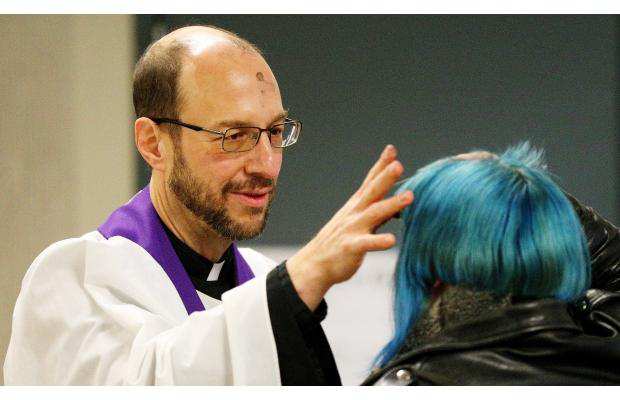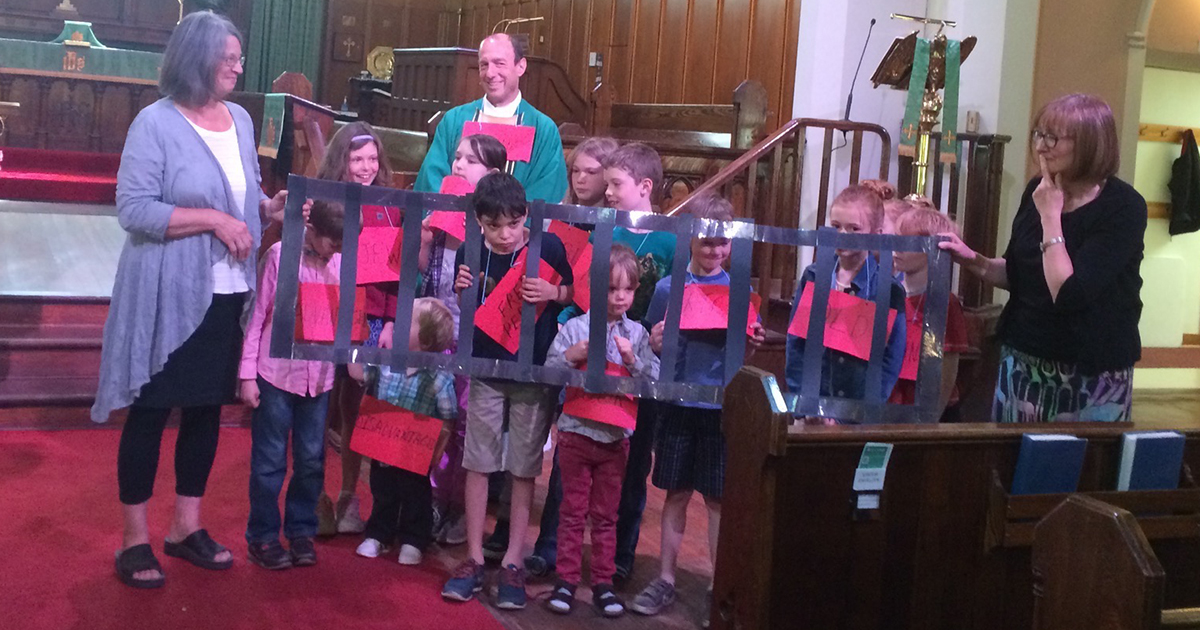The following is part of an ongoing monthly series on congregational development, which features reflections from Anglicans on how they are responding to the challenges facing churches today.
More than any other factor, the Ven. Christopher Pappas sees effective leadership as the single most vital quality of developing parishes and congregations.
“We need good clergy leaders and we need good lay leaders … In healthy parishes, these are not mutually exclusive,” says Pappas, currently rector of Holy Trinity Anglican Church and diocesan archdeacon for congregational growth and development in the Diocese of Edmonton.
Pappas cites the importance of learning from both church and secular thought leadership, as well as the need for diocesan support, praising the example of Bishop Jane Alexander.
“Your bishop has to be inspiring, has to be open to experimentation, and has to enable leaders,” he says. “You need to be able to step back in a congregation and look at the big picture … Good leaders are necessary to help us tackle our problems, to be vital, and to help engage the world around us.”
A graduate of Yale Divinity School and Berkeley Divinity School at Yale, Pappas himself has served in both church and secular leadership roles, including as the Assistant Secretary of State for Connecticut.
His interest in congregational development was spurred on through attending consultations on Vital Parishes more than a decade ago. Pappas has served as a member of the Diocesan Congregational Development Commission in the Episcopal Diocese of Rhode Island, and is currently studying for a Doctor of Ministry in Congregational Development.
“To me, congregational development [and] parish development are ways to help our parishes to serve, to reach their potential to become healthy, to become vital, and to impact their surrounding contexts … to build up the kingdom of God in our parishes and in our context in order for us to effectively carry out God’s mission.”

Effective congregational development, he says, begins with helping parishes and congregations find out where they are and where they wish to go. For the Diocese of Edmonton, Pappas uses an analytical framework known as the Congregational Assessment Tool to identify the strengths, weaknesses, hopes, and goals of congregations as a starting point.
“I’m a big proponent of using their strengths to grow parishes, to move them forward … I don’t think we should be pouring resources into the areas that we’re weak.”
The other key element is for congregations to determine how to engage the surrounding culture based on their own role as a church in God’s overarching story.
In the case of Holy Trinity Anglican Church, members focused on the arts as a way to increase their ties with the community, looking for ways to “make Christ visible” through the visual, musical, and theatrical arts.
Pappas highlights increase in traditional growth indicators such as increased attendance and money given to the community, but also measures success in less measureable indicators such as the congregation’s increased sense of mission and closeness to its neighbours. Holy Trinity has further developed its relationships with the community by administering ashes and going caroling in light rail transit stations throughout the city around Christmas among other ways.
“The people in our community now know who we are,” Pappas says. “Six years ago, if we went out in the streets, three blocks away from the church, many people wouldn’t know where the church was.
“Now we walk into markets and places throughout the city and you mention Holy Trinity and they’ll say, ‘Yes, you’re the church that does this stuff with the arts; you’re the church that’s engaged in the neighbourhood.’”
In assessing successful congregations, Pappas finds a number of common factors within the Diocese of Edmonton:
- High satisfaction, marked by a sense of wholeness and prosperity;
- High energy, as members find a compelling purpose or message and feel highly engaged in the process;
- Flexibility in approach, e.g. if the church wishes to reach children and families, it may be willing to change its time or style of worship;
- High hospitality to newcomers;
- Healthy ways of resolving conflict;
- Educational opportunities, promoting life-long discipleship;
- Good governance structures, in which members feel represented by their leaders; and
- Good worship and good music
Across the diocese, he adds, there has been a consistent emphasis on putting mission first.
“We shouldn’t be looking for church-shaped missions,” Pappas says. “But we should be a mission-shaped church.”
Interested in keeping up-to-date on news, opinion, events and resources from the Anglican Church of Canada? Sign up for our email alerts .

